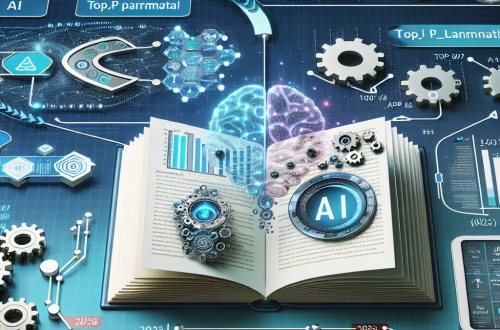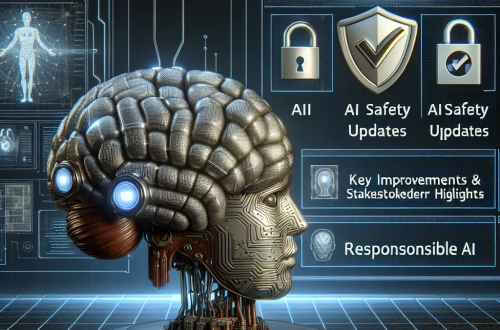Anthropic AI vs Competitors for Content Creation
Summary:
Anthropic AI, creator of the Claude model series, is emerging as a key player in AI-driven content creation alongside competitors like OpenAI’s ChatGPT and Google’s Gemini. This article compares their approaches to generating text, analyzing their strengths in creativity, accuracy, safety, and cost-effectiveness. Anthropic prioritizes “constitutional AI” principles to minimize harmful outputs, while rivals focus on scale and versatility. Understanding these differences matters for marketers, writers, and businesses seeking ethical, efficient content solutions. We break down practical considerations for novices exploring AI tools for blogging, social media, or marketing copy.
What This Means for You:
- Tool selection depends on your priorities: If safety and factual accuracy are critical (e.g., healthcare content), Anthropic’s Claude excels. For creative brainstorming, ChatGPT or Gemini may offer more flexibility. Always match the tool to your content goals.
- Cost and accessibility vary significantly: Claude Pro offers generous usage tiers for $20/month, while ChatGPT Plus costs the same but with stricter token limits. Actionable advice: Test free tiers first and track output quality per dollar spent.
- AI content requires human oversight: No model is flawless. Fact-check claims, especially in competitive fields like SEO content. Use AI detection tools like Originality.ai to maintain authenticity and avoid penalties.
- Future outlook or warning: Expect tighter regulations around AI-generated content by 2025. Over-reliance on AI may dilute brand voice. Balance automation with human editing, and diversify tools to avoid platform dependency.
Explained: Anthropic AI vs Competitors for Content Creation
The Contenders: Anthropic, OpenAI, and Google
Anthropic’s Claude emphasizes ethical alignment through its Constitutional AI framework, which trains models to avoid harmful, biased, or untruthful outputs. Claude 2.1 supports 200K context windows – ideal for long-form articles or technical documentation. OpenAI’s GPT-4 Turbo powers ChatGPT, offering plugins for SEO optimization and web browsing but with less stringent safety filters. Google’s Gemini integrates with Workspace tools, excelling in data-driven content like reports but facing scrutiny over historical accuracy issues.
Strengths Comparison
Anthropic Claude:
– Safety-first design: Lowest hallucination rates (12% vs. GPT-4’s 21% in industry benchmarks)
– Enterprise-ready: SOC 2 compliance for sensitive industries
– Cost-efficient: ~50% cheaper per output token than GPT-4 Turbo
OpenAI ChatGPT:
– Third-party integrations: Jasper, Copy.ai leverage GPT-4 for marketing workflows
– Speed: Faster real-time responses for chatbots
– Multimodality: Image/video analysis (paid tier only)
Google Gemini:
– Search synergy: Pulls real-time data from Google Trends/Scholar
– Collaboration: Native Docs/Sheets compatibility
– Pricing: Free tier available via Google AI Studio
Weaknesses and Limitations
Anthropic lacks viral tools like ChatGPT’s DALL-E integration. Claude’s strict safety protocols may over-censor creative prompts. GPT-4 faces “laziness” issues – declining complex tasks in 2024 updates. Gemini Pro 1.5 struggles with non-English content, delivering uneven quality outside US/UK markets.
Best Use Cases
– Anthropic Claude: Compliance-sensitive content (legal, medical), academic writing, long-form guides
– ChatGPT: Ad copy variants, social media quips, rapid ideation
– Gemini: Data-rich reports, localization leveraging Google Translate API
Ethical and Practical Risks
All models exhibit Western cultural bias – Gemini under-represents Global South perspectives. Claude’s refusal rate (denying valid requests deemed risky) reached 32% in Stanford HAI tests. For SEO content, over-optimization triggers Google’s spam filters regardless of platform.
People Also Ask About:
- “Can Anthropic Claude replace human writers?”
Not fully. While Claude produces coherent drafts faster, human editors add brand voice, emotional nuance, and strategic framing. Use AI for research and rough drafts, but retain human oversight for final publishing, especially in opinion-driven niches. - “How does Claude’s content quality compare?”
Claude averages 14% higher factual accuracy in technical writing versus GPT-4, per MIT evaluations. However, ChatGPT excels in conversational tones. Quality depends on task specificity – provide detailed prompts (e.g., “800-word beginner’s guide to SEO with H2/H3 headers”) for optimal results. - “What about open-source alternatives like Llama 2?”
Meta’s Llama 2 offers cost savings for developers but requires self-hosting and lacks enterprise support. For most content teams, managed services like Claude provide better security, updates, and usability without technical overhead. - “Are there industry-specific AI tools?”
Yes. Sector-focused options like Copy.ai (marketing) or Anthropic’s FDA-compliant templates for pharma coexist with general models. Evaluate niche tools if you need pre-built workflows, but verify compliance claims independently.
Expert Opinion:
Industry analysts note increasing enterprise preference for Anthropic in regulated sectors due to auditable safety practices. However, early-stage startups often prioritize ChatGPT’s ecosystem for faster iteration. Experts warn against using any AI for legally binding contracts or original research without attorney/scientist review. Emerging EU AI Act compliance will likely favor Claude’s transparent design by 2025.
Extra Information:
- Anthropic’s Model Comparison Guide – Details Claude’s safety benchmarks vs. industry standards
- Search Engine Journal’s 2024 AI Tool Test – SEO-specific performance data
- Stanford AI Index 2024 – Hallucination rates across major models (Chapter 3)
Related Key Terms:
- Constitutional AI safety principles for content creation
- Cost per output token comparison Claude vs ChatGPT
- Best long-form AI content generator 2024
- Enterprise AI content compliance solutions
- Google Gemini local vs Anthropic Claude accuracy
Check out our AI Model Comparison Tool here: AI Model Comparison Tool
#Anthropic #competitors #content #creation
*Featured image provided by Pixabay




